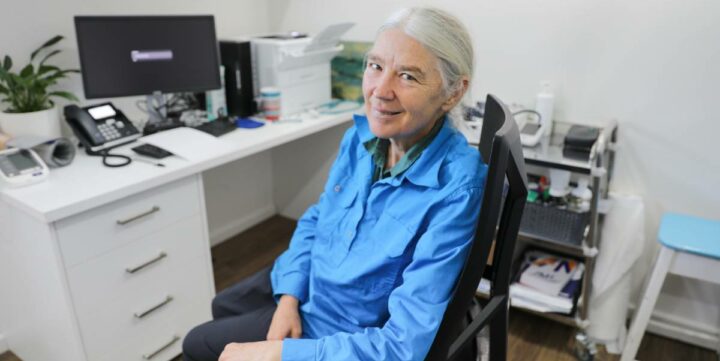The first roll-out of the New Medicare model
November 27, 2023
Change is here
The landscape of general practice in Australia is set for a pivotal change from November 1, 2023, with the introduction of new Medicare Benefits Schedule (MBS) bulk billing items that substantially increase incentive payments for practitioners. This progressive step is a commendable move by the authorities to ease the cost-of-living pressure on vulnerable sections of the community, especially younger Australians and concessional patients, as well as incentivise current general practitioners whilst addressing the short supply of general practitioners nation-wide.
The recent budget announcement marks a watershed moment for healthcare in Australia. The Albanese government’s commitment of $3.5 billion to enhance bulk billing incentives signals a renewed focus on universal healthcare, addressing long-standing disparities and accessibility issues that have crept into the system over the years. This transformative measure is more than a financial package; it’s a vision for a healthier, more equitable Australia, where the well-being of the most vulnerable is prioritised, according to the Albanese government.
The Budget and Medicare reform
The heartening aspect of the new budget is the substantial increase in financial incentives for general practitioners who offer bulk billing to children, pensioners, and concession cardholders. The tripling of these incentives, particularly for GPs operating in rural areas, is a recognition of the uneven healthcare landscape many Australians navigate. For too long, the financial strain of maintaining comprehensive services in rural communities has seen bulk billing clinics dwindle. By significantly increasing the incentives, we are acknowledging the additional operational challenges faced by rural practices and ensuring that no Australian is disadvantaged because of their location.
This financial stimulus is not solely about economics; it’s a strategy to combat the real-world consequences of increasing gap fees and decreasing bulk billing rates. These issues aren’t just statistics; they represent delayed or avoided doctor visits, undiagnosed conditions, and undue pressure on public hospitals. By addressing these economic barriers, the government is reaffirming the right to health – ensuring families never have to choose between medical care and financial stability.
The new changes are particularly noteworthy for several reasons. Firstly, they represent a significant financial increase, tripling the amount of the existing standard bulk billing incentives. This substantial rise is applicable for all face-to-face general attendance consultations longer than six minutes and extends across various consultation scenarios, including in consulting rooms, residential aged care facilities, and both during business and after hours. In addition, the revamped structure benefits MBS Level B video and telephone consultations, with added incentives for extended consultations over 20 minutes, provided patients are registered through MyMedicare.
Furthermore, the government’s decision to introduce a Medicare rebate for 60-minute consultations is a game-changer, particularly for patients requiring mental health support or complex care. This decision recognises that quality healthcare cannot always be constrained by time limits. It’s an acknowledgment that patient-centred care often requires a comprehensive approach, especially for mental health cases where the reduction of Medicare-funded psychology sessions had left a glaring void.
A new Medicare model
However, the most innovative aspect of the budget is the move away from the traditional fee-for-service model, a system that has been the backbone of Medicare for four decades. The introduction of the MyMedicare system, facilitating longer telehealth sessions, and incentivising GPs to reduce emergency department visits, reflects a paradigm shift. It’s a step towards holistic, continuous care, where the focus is on overall health outcomes rather than transactional interactions.
Investing in a multidisciplinary approach, evident from the $500 million allocation for employing diverse health professionals within GP practices, is another progressive step. This model fosters a more holistic approach to health, recognising the interconnectedness of physical and mental health, and the various factors that contribute to well-being.
The budget’s healthcare measures herald a new era for medical practice in Australia. By bolstering support for bulk billing, incentivising more thorough consultations, and moving towards a more patient-centred care model, they are not just reforming a system; they are shifting a paradigm.
A step in the right direction
These enhancements to the bulk billing system are not just fiscal adjustments; they are strategic enhancements to the healthcare system, reflecting the government’s recognition of the increasing demands on general practice, particularly in the face of a global pandemic. The changes are poised to offer greater support to practices that continue to offer bulk-billed services, ensuring they remain sustainable and accessible, especially to those who are most vulnerable financially.
For general practitioners, these changes mean an opportunity and a responsibility. The opportunity lies in the potential for increased revenue, which can support the demand for general practitioners nation-wide, as well as resources needed for quality care — from maintaining modern medical equipment to investing in continuous staff training.
Additionally, this reform provides impetus for general practice to further integrate technology, given the specific mention of video and telephone consultations. The past few years have demonstrated the efficacy and convenience of telehealth, and these new incentives should encourage its continued integration into everyday practice, enhancing access for patients unable to attend in person.
However, while these changes are welcome, they also invite a period of transition and adaptation. Practices will need to ensure their billing systems, staff training, and patient communication strategies are aligned with these new measures. It is also essential for practices to be proactive in reaching out to communities less aware of how these changes benefit them, particularly in regional, rural, and remote communities, where healthcare access is often limited.
The increased MBS bulk billing incentives are a positive leap forward for general practitioners across Australia. By supporting practices financially, these changes underpin the continued provision of high-quality, accessible healthcare, especially for younger and concessional patients feeling the pinch of cost-of-living pressures. As medical professionals committed to the health and wellbeing of all Australians, it is incumbent upon us to embrace these changes, adapt our practices accordingly, and ensure that the potential benefits are fully realised at the community level.












